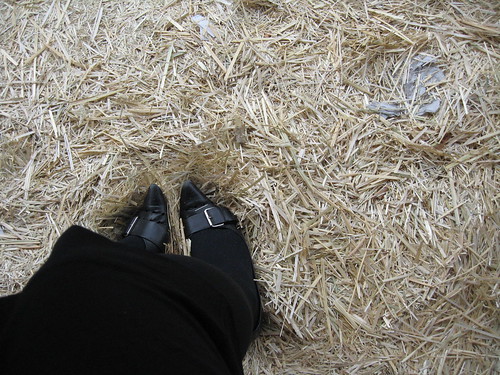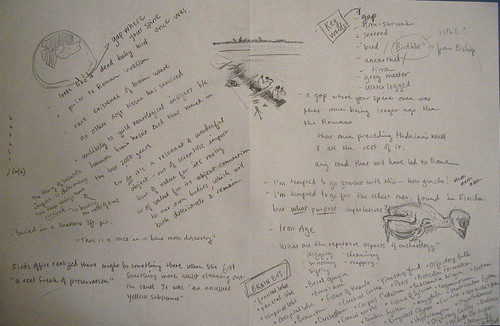I've been thinking and writing a lot these days of home.

The other weekend, waiting for a friend in New York, I was very struck by the observation that even in the city I find myself surrounded by hay. It's not that there was hay pervading my childhood, but I've come to associate it with home, since they got the horses. Now the smell of hay - musty, grassy, and warm - makes me think of being curled up on the couch with my folks.
My father commented recently that I only ever write about the bad stuff. It gave me pause. It just really hadn't, I think, occurred to me to divide life into good things and bad things.

I've been working more on my
Archaeology of Wonder essays lately. One is about
the woods I grew up amidst - the methods my family and I utilized to navigate our relationship to it. The other is about the time, as a toddler, I almost drowned.
Here's how it came about. I was walking up my driveway with Melissa and Felisa on a recent visit from them. Felisa had never been to my home before, so I was telling her stories about the woods. As we passed by the pipe I was sucked through as a 15-month-old, I told the story that my family always tells amongst ourselves about how it happened.
It's a short story, really more of a skeleton of a story than anything. Something in its manner reminds me of the schematics of myths that are in
Edith Hamilton's Mythology. I guess I had neglected to tell them the story before; they had a stronger response to it than I had anticipated. I figure that, since the primary mode through which I know this event is through our truncated little sketch of a family story, my response to it is mitigated by the way it's told.
It made me think about the soothing role of repetition. It made me think about narrative and trauma, and about how we might align ourselves to different narrative threads throughout our lives.
I know that the idea that I'm writing about this thing that happened makes my parents uncomfortable. I wonder if perhaps it is harder for them because the trauma of the event was post-linguistic. For me it was pre-linguistic, so any story I tell myself about it remains just that - a story, no more or less moving than a novel.
I have never had an interest in those wretched water slides though. I can't think of an amusement more horrifying.





